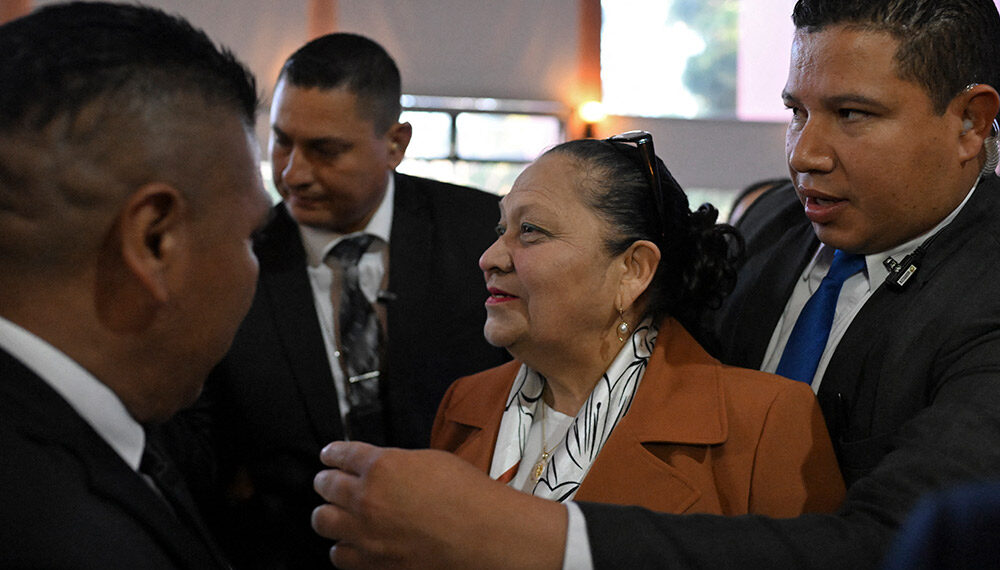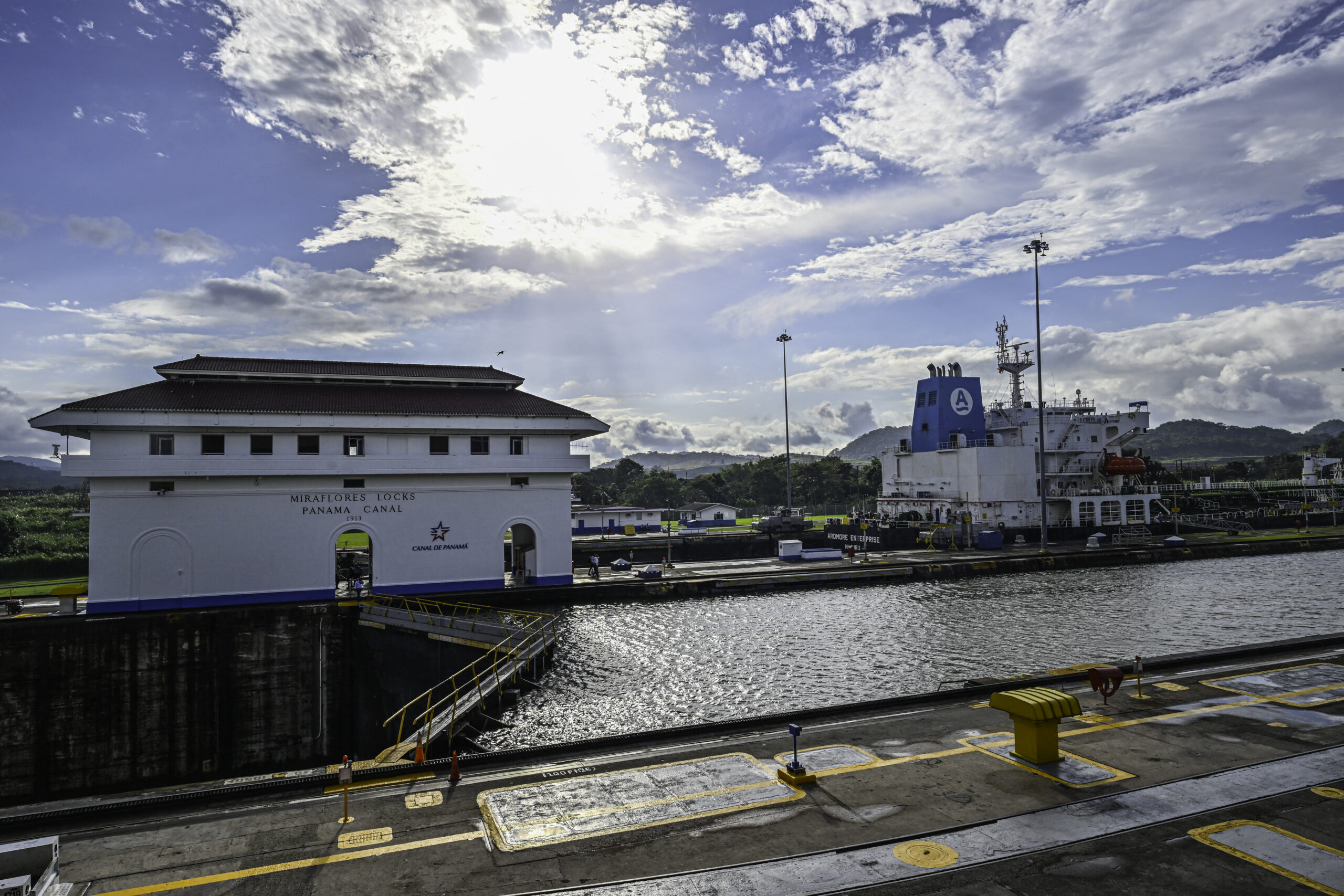Central America
The endless wait for word on loved ones arrested in Nicaragua

Every day, family members of the 21 opposition figures rounded up in Nicaragua in the past month visit the prison where they think their loved ones are held. Every day they leave disappointed, with no contact and no news.
“Some have been (held) for 31 days and no one” has been allowed to see them, “not even the lawyers,” said Martha Urcuyo, wife of detainee Pedro Chamorro.
“We hope that they are here,” she told AFP on one of her regular, but fruitless, visits to El Chipote prison southwest of Managua with other spouses, parents and children of the 21 seized in house raids and nighttime arrests which began on June 2.
Chamorro, a journalist, former opposition lawmaker and son of ex-president Violeta Barrios de Chamorro, was arrested on June 25 on charges of “inciting foreign interference” and “applauding” sanctions against Nicaragua.
His was the most recent arrest in the raids that have netted five presidential candidates including his sister Cristiana Chamorro — a favorite to beat Ortega in the November poll. She is under house arrest.
The siblings’ mother had beaten Ortega in 1990, ending an 11-year spell for the ex-guerilla at Nicaragua’s helm. He returned in 2007 and has twice won re-election since then.
Ortega accuses the detainees, who include critics, politicians, businessmen and former comrades, of being “criminals” seeking to overthrow him with US backing.
Under threat, several other Ortega opponents have fled the country ahead of the election in which he is widely expected to seek a fourth consecutive term, though he has not said so.
Most of the detainees face charges under a new law initiated by Ortega’s government and approved by parliament in December to defend Nicaragua’s “sovereignty.”
The law has been widely criticized as a means of freezing out challengers and silencing opponents.
– “We know nothing’ –
The international community has condemned Ortega’s crackdown and called for the release of the detainees.
But neither the outcry nor fresh US sanctions against Ortega allies have stopped the parade of detainees to El Chipote pre-trial prison — where rights groups have reported numerous instances of beatings and mistreatment in recent years.
It has been torture for loved ones as well.
“We always bring food, and then go back home with it,” Urcuyo said as she approached the jail bearing a recyclable plastic shopping bag with goodies for her husband, squaring her shoulders as she walked past a line of police in riot gear.
“We come three times a day and the only thing they (the guards) take from us is water,” she added.
Arlen Tinoco, the daughter of detained former foreign minister Victor Tinoco, said “we know nothing” about the fate of the prisoners.
“They have not informed us, they have not said anything. They have not allowed them (the prisoners) to see lawyers, we have zero information.”
A firebrand Marxist in his younger days, Ortega and his Sandinistas toppled a corrupt autocratic regime to popular applause and seized control of the country in 1979.
But opponents have increasingly denounced a descent into dictatorship, nepotism and corruption under Ortega, who leads the ruling Sandinista National Liberation Front (FSLN).
His vice president is also his wife, Rosario Murillo.
Last week, UN rights chief Michelle Bachelet urged the UN’s Human Rights Council to hold the Ortega government to account for “serious violations committed since April 2018,” including the recent arrests.
Rallies demanding the resignation of Ortega and Murillo broke out that year, but a violent clampdown claimed 328 lives, according to rights bodies, while hundreds were imprisoned and some 100,000 Nicaraguans fled into exile.
Central America
Guatemala’s Attorney General Fails in Bid for Top Court Seat Amid Corruption Allegations

The Attorney General of Guatemala, Consuelo Porras, failed on Tuesday in her bid to join the country’s highest constitutional court, a position that would have granted her immunity from corruption allegations for which she has been sanctioned by the United States and the European Union.
Porras, whose term as attorney general ends in May, did not receive a single vote in the final round of voting to become a magistrate of the Corte de Constitucionalidad, whose rulings are final and cannot be appealed.
The Supreme Court reelected Dina Ochoa and Claudia Paniagua as its representatives to the Constitutional Court.
Ochoa is considered close to former presidents Jimmy Morales (2016–2020) and Alejandro Giammattei (2020–2024), both accused of corruption. Paniagua, like Porras, has been sanctioned by the United States.
Washington and the European Union have labeled Porras as “corrupt” and “undemocratic,” accusing her of attempting to block the inauguration of Social Democratic President Bernardo Arévalo two years ago.
In addition, the 72-year-old attorney general—who is seeking a third term—has been accused of forcing anti-corruption officials, journalists, and social leaders into exile. She denies the allegations and claims they are part of a political persecution campaign.
Porras’ chances of remaining in office, a position she has held since 2018, are considered slim, as President Arévalo is responsible for appointing the next attorney general.
Central America
Panama Canal Monitoring Trade as Middle East Conflict Disrupts Shipping

The Panama Canal Authority (ACP) said Monday it is closely monitoring global maritime trade developments following the conflict triggered by joint U.S. and Israeli strikes against Iran.
However, the ACP described it as “premature” to predict potential consequences for vessel traffic through the interoceanic waterway, which handles roughly 5% of global maritime trade.
“The Panama Canal continuously monitors the evolution of international maritime trade and the dynamics that may influence its flows,” the authority said in a statement. The canal’s main users are the United States and China, connecting primarily the U.S. East Coast with Asia, including South Korea and Japan.
The ACP emphasized that the canal “continues to operate safely, efficiently, and reliably,” providing uninterrupted service to the global maritime community.
Global Shipping Disruptions
The U.S.-Israeli military operation against Iran and Tehran’s retaliatory actions have disrupted global maritime traffic, particularly oil tanker routes.
Shipping giants Maersk and CMA CGM have suspended transits through the Strait of Hormuz as well as crossings via the Suez Canal, the key route linking the Mediterranean Sea and the Red Sea.
As a result, cargo vessels are now rerouting around Africa to reach Europe from the Middle East and Asia — a detour that adds several thousand kilometers and several days to voyages.
Central America
Washington Imposes Visa Ban on La Modelo Director Amid Crackdown in Nicaragua

The United States government announced Wednesday that it has imposed visa restrictions on Roberto Clemente Guevara Gómez, director of Nicaragua’s largest prison, La Modelo, for his involvement in actions that violate human rights.
In a statement, U.S. Secretary of State Marco Rubio said the measure is intended to promote accountability for abuses committed under what he described as the “Murillo-Ortega dictatorship” against political prisoners.
Rubio specified that Guevara Gómez was designated for participating in “a gross violation of the human rights of a political prisoner.” The sanction was issued under the 2024 Department of State, Foreign Operations, and Related Programs Appropriations Act, which bars the sanctioned individual — and potentially immediate family members — from entering the United States.
“United States demands the immediate and unconditional release of all political prisoners unjustly detained in Nicaragua,” the statement added.
Ongoing tensions between Washington and Managua
Washington rejected Nicaragua’s November 2021 elections, in which President Daniel Ortega and his wife, now co-president Rosario Murillo, were reelected while seven potential challengers were in prison.
Relations between the two countries remain tense amid expanding U.S. sanctions and increasing diplomatic pressure on the Nicaraguan government.
On January 10, marking Ortega’s 19 years in power, Nicaragua released “dozens of detainees,” including political prisoners. The move came one day after the U.S. Embassy in Managua stated that “more than 60 people” remain “unjustly detained or disappeared” in the Central American nation.
U.S. officials have continued to push for the “unconditional release” of political prisoners rather than selective or temporary releases.
Ortega, 80, governs alongside Murillo with consolidated authority, having strengthened executive power through constitutional reforms and security measures, while the opposition has been weakened by imprisonment, exile, and the revocation of citizenship and property rights.
-

 International3 days ago
International3 days agoIran Reports 201 Dead, 747 Injured After U.S. and Israeli Strikes
-

 International3 days ago
International3 days agoPope Leo XIV Urges End to ‘Spiral of Violence’ in Middle East
-

 International2 days ago
International2 days agoBrazil’s Supreme Court Rejects Bolsonaro’s Bid for House Arrest
-

 International4 days ago
International4 days agoSecurity Council to Hold Emergency Meeting on Middle East Crisis
-

 International5 days ago
International5 days agoTrump Floats “Friendly Takeover” of Cuba Amid Rising Tensions
-

 Sin categoría4 days ago
Sin categoría4 days agoTrump: ‘We Think It’s True’ Amid Claims Iran’s Supreme Leader Was Killed
-

 International5 days ago
International5 days agoArgentina’s Senate Reviews Milei-Backed Labor Overhaul
-

 International2 days ago
International2 days agoAnti-ICE Billboard Campaign Targets Immigration Spending in 31 U.S. Cities
-

 International2 days ago
International2 days agoTrump Warns of ‘Major Wave’ of Attacks as Iran Conflict Escalates
-

 International2 days ago
International2 days agoMexico Calls for Immediate Probe After National Dies in ICE Custody
-

 International19 hours ago
International19 hours agoSpain’s Prime Minister to Address Nation Amid Trump’s Trade Threats
-

 International19 hours ago
International19 hours agoNew York Announces First 2,000 Seats in Universal 2-K Program
-

 Central America2 days ago
Central America2 days agoPanama Canal Monitoring Trade as Middle East Conflict Disrupts Shipping
-

 International2 days ago
International2 days agoBolivia Orders Three Investigations Into Deadly Military Plane Crash
-

 Central America19 hours ago
Central America19 hours agoGuatemala’s Attorney General Fails in Bid for Top Court Seat Amid Corruption Allegations
-

 International19 hours ago
International19 hours agoWarner Bros. Developing First ‘Game of Thrones’ Movie With ‘Andor’ Writer




























